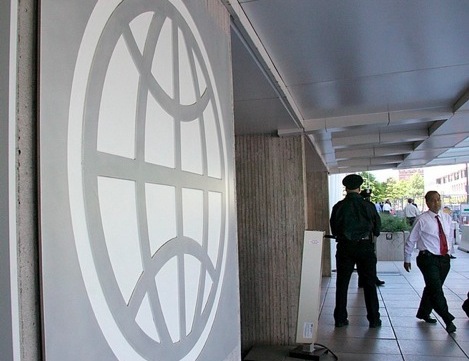World Bank may allocate additional funding on waste project in Azerbaijan

By Nigar Orujova
The World Bank (WB) and the Azerbaijani government began official negotiations on additional funding for an Integrated Solid Waste Management Project.
The Solid Waste Management Project was approved by the WB's Board of Directors in June 2008. A relevant loan agreement between the bank and Azerbaijan was signed on May 20, 2009. The total project cost is $41.5 million of which $29.5 million falls to the WB's 20-year loan and the rest is funded by the government of Azerbaijan.
The WB Baku office reported that the bank plans to allocate $47.1 million of the credit resources of the International Bank for Reconstruction and Development (part of the WB) as additional funding, while the share belonging to the government will be about $8 million.
Negotiations will be completed by the end of this week. A protocol will be signed following the talks and will be presented to the WB Board of Directors. The loan is to be approved by the WB Board of Directors on May 30.
Bulk part of the additional funding will be allocated for the reconstruction of a solid waste landfill in Balakhani (component B), reimbursement of the additional costs for project management (component A), as well as work on technical preparations for future investments in this sector (component E).
The project closes on September 30, 2013, but in order to complete work using the additional financing, a three-year extension of the project until September 30, 2016 is required.
The project covers the following areas: institutional reforms, capacity development and administration, the regulation and management of Balakhani solid waste landfill, as well as the closing and management of some other junk yards, purchase of equipment for solid waste collection and preparation of an investment plan for the period after the completion of the project.
The project is aimed to support reforms conducted for systematic and continuous organization of the solid municipal waste collection and utilization.
According to research conducted by the WB and Economic Development Ministry, the annual solid waste volume in Baku is 350 kilograms per capita.
The Azerbaijani capital is home to about one-fourth of the country's total population of nine million, and landfills cannot receive solid waste of the growing population forever. Moreover, the growing city cannot afford wasting such large territories to collect garbage, which would be dangerous for nearby residents.
To escape the waste problem the Solid Waste Sorting Plant and Baku Solid Waste Incineration Plant were launched in Azerbaijan in December 2012.
The plant is expected to develop recycling business in the country and will annually receive about 200,000 tons of solid waste, including glass, plastic, paper and colored metal. Residue from the process will be an inert clinker, which could be used as a construction material.
The incinerator will be an alternative source of energy production. It will be able to produce 231.5 million kilowatts per year, which is enough to provide 50,000 households with electricity.
Since establishing cooperation with Azerbaijan in 1992, the World Bank has financed 56 projects in various sectors of the economy for a total of $3.4 billion in loans and grants of the International Development Association (IDA) and the International Bank for Reconstruction and Development (IBRD). During this period, the WB has allocated $42 million to Azerbaijan for the development of projects and feasibility studies and the organization of training.
Here we are to serve you with news right now. It does not cost much, but worth your attention.
Choose to support open, independent, quality journalism and subscribe on a monthly basis.
By subscribing to our online newspaper, you can have full digital access to all news, analysis, and much more.
You can also follow AzerNEWS on Twitter @AzerNewsAz or Facebook @AzerNewsNewspaper
Thank you!
